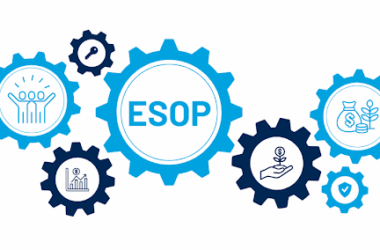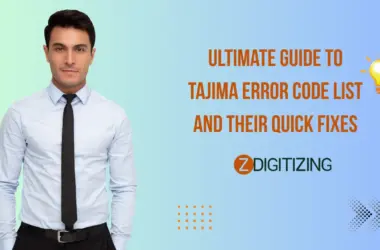The demand for halal-compliant products continues to rise across the United States, driven by a growing Muslim population exceeding 3.45 million and an expanding market valued at billions. Food manufacturers, processors, and restaurant owners increasingly seek halal certification to build consumer trust, access new customer segments, and boost sales. This certification confirms that products and services adhere to Islamic dietary laws, prohibiting pork, alcohol, and improperly slaughtered meat while ensuring no cross-contamination.
Achieving certification opens doors to ethical sourcing, international trade, and loyalty from health-conscious buyers beyond the Muslim community. Many non-Muslim consumers prefer halal options for their stringent quality standards. In this detailed guide, explore the full process, key players, and tips tailored for American businesses.
What Is Halal Certification and Why Pursue It?
Halal certification verifies that food, beverages, cosmetics, and pharmaceuticals meet Sharia-compliant standards. It involves rigorous checks on ingredients, sourcing, processing, storage, and packaging. Certifiers examine every stage to prevent haram (forbidden) elements like carrion, blood, or intoxicants.
For U.S. companies, this means complying with FDA regulations alongside halal rules. Certified products can carry a trusted logo, signaling purity to shoppers. Businesses report up to 20-30% revenue growth post-certification, especially in diverse cities like New York, Chicago, and Los Angeles.
The Role of a Halal Certificate in Building Trust
A halal certificate serves as official documentation from a recognized body, valid for one year and renewable. It lists approved products, audit dates, and certifying authority. Displaying this certificate on packaging or websites reassures buyers.
Without it, claims of “halal” risk misleading consumers and legal issues. Courts have ruled against uncertified sellers for false advertising. The certificate also facilitates exports to Muslim-majority countries requiring verified halal status.
Choosing the Best Halal Certification Company
Selecting a reliable halal certification company is crucial. Look for organizations with international recognition, experienced Sharia boards, and transparent processes. Leading options include the Islamic Food and Nutrition Council of America (IFANCA), Islamic Services of America (ISA), and American Halal Foundation (AHF). These bodies audit thousands of products annually.
Compare fees, audit frequency, and global acceptance. Some charge $500-$5,000 initially, plus annual renewals based on company size and product risk.
Halal Certification Services USA: Tailored Options for American Firms
Halal certification services USA providers offer customized audits for manufacturers, importers, and retailers. Services include ingredient reviews, supplier verifications, and ongoing monitoring. For small businesses, streamlined packages start with desk audits before site visits.
These services ensure FDA alignment, critical for U.S. operations. Providers like Halal Food Standards Alliance of America (HFSAA) emphasize traceability from farm to fork.
Halal Certification for Restaurant Success Stories
Halal certification for restaurant operations focuses on menu items, kitchen hygiene, and staff training. Auditors inspect meat suppliers for zabiha (Islamic slaughter), separate utensils, and alcohol-free environments. Popular chains like Halal Guys and local spots in Dearborn, Michigan, thrive with certification.
Certified eateries attract 40% more foot traffic from Muslim patrons. Implementation costs average $1,000-$3,000, recouped quickly through increased orders.
Steps for Restaurants:
- Document Suppliers: Verify all proteins and sauces.
- Kitchen Audit: Install halal-only sinks or color-coded tools.
- Train Staff: Educate on cross-contamination prevention.
- Final Approval: Sharia review and logo placement.
Partnering with a Halal Certification Agency
A Halal Certification Agency oversees the entire journey. Reputable agencies maintain fatwa-issuing scholars and labs for testing. They provide templates for halal policies and handle renewals seamlessly.
Engage early to avoid delays. Agencies often offer free consultations to assess readiness.
Identifying the Halal Certification Symbol
The halal certification symbol—a crescent moon, Arabic script, or agency-specific logo—appears on certified items. Common ones include IFANCA’s crescent-M or ISA’s mark. Always check the issuing body for authenticity, as counterfeits exist.
Consumers scan apps or websites to validate symbols.
Step-by-Step Process to Secure Halal Certification in USA
- Research Certifiers: Shortlist 3-5 based on industry focus.
- Submit Application: Provide product lists, recipes, and facility details.
- Pay Fees: Initial review costs $200-$1,000.
- Desk Audit: Experts analyze documents for compliance.
- On-Site Inspection: Auditors visit for 1-2 days, sampling and observing.
- Sharia Review: Scholars approve or request fixes.
- Certification Issued: Receive halal certificate and usage rights.
- Annual Audits: Maintain standards for renewal.
Timeline: 4-12 weeks. Fix issues promptly to speed up.
Common Challenges and Solutions
- Ingredient Sourcing: Switch to certified suppliers.
- Cross-Contamination: Dedicate production lines.
- Costs: Start with high-volume products for ROI.
For Reliable Halal Certification Services USA, Visit Halal Watch World
Businesses praise Halal Watch World at halalwatch.us for its 40+ years of expertise and USDHS accreditation. This Halal Certification Agency serves diverse sectors with efficient audits and global recognition.
Final Thoughts: Start Your Halal Journey Today
Securing halal certification positions your business for long-term success in America’s diverse market. From factories to fine dining, compliance delivers credibility and profits. Contact a certifier now—your certified future awaits.











